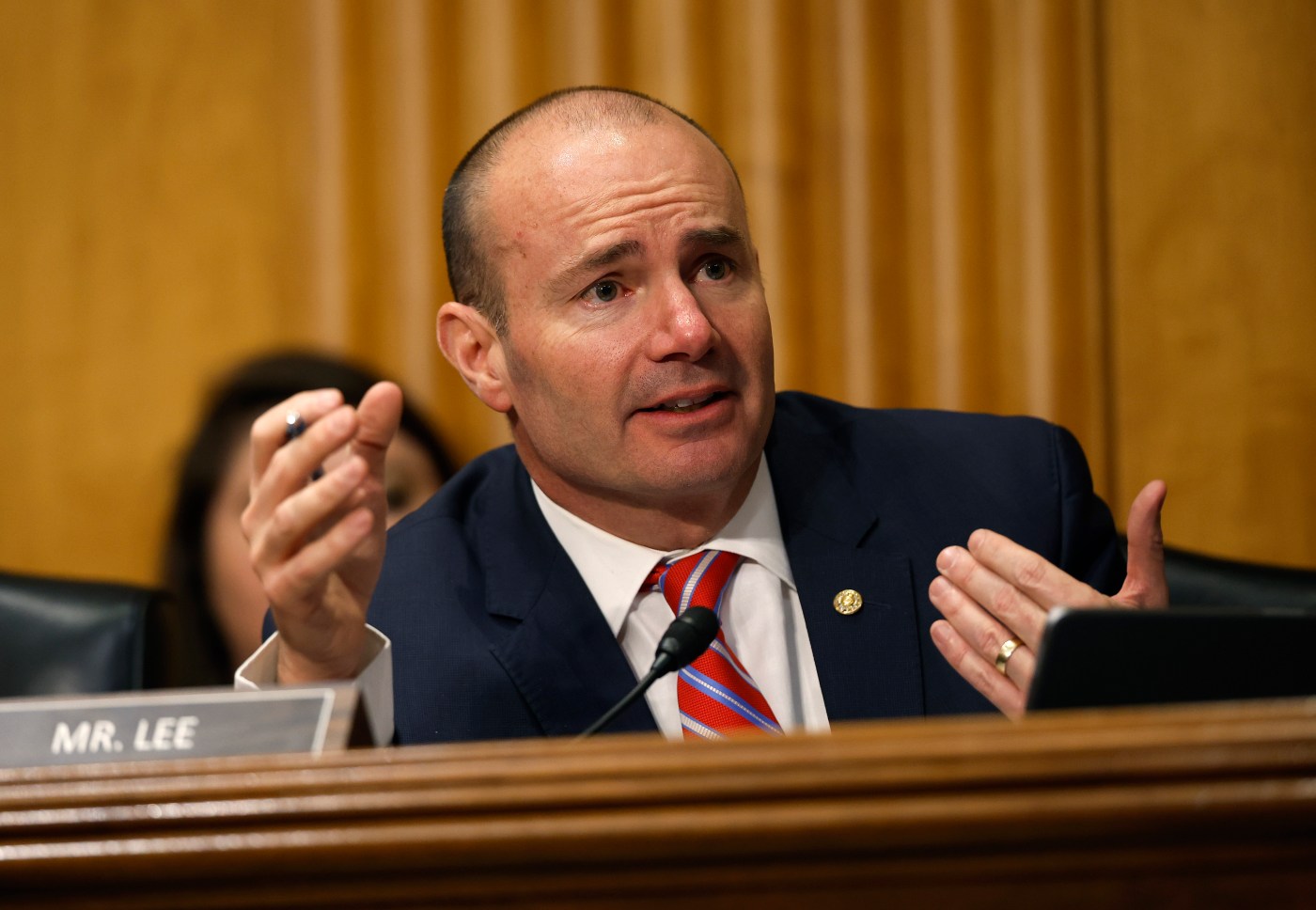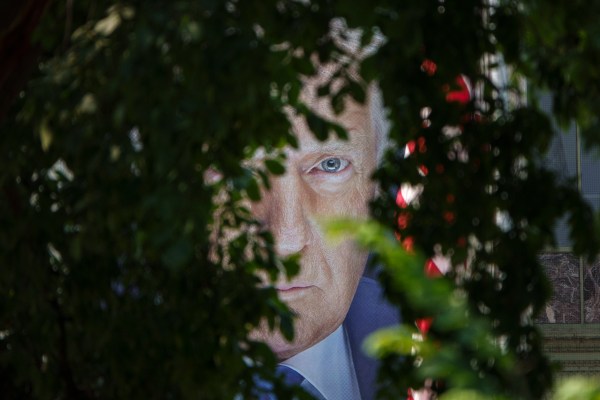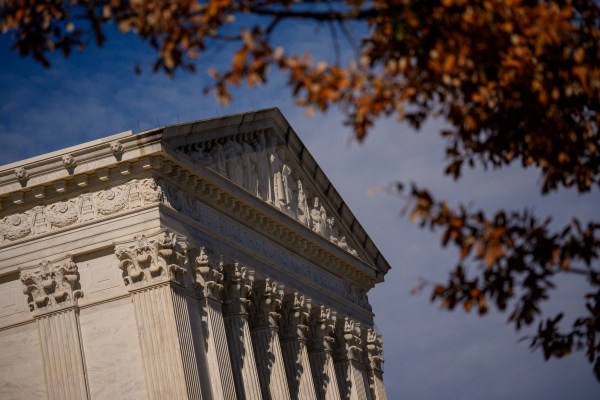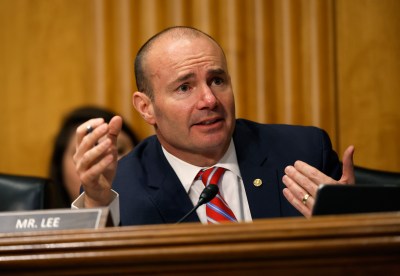Turn any article into a podcast. Upgrade now to start listening.
Premium Members can share articles with friends & family to bypass the paywall.
On January 20, 2017, Republican Sen. Mike Lee of Utah introduced the Global Trade Accountability Act, a bill to subject presidential actions on trade to congressional approval.
“Congress has ceded far too much law making power to the Executive branch including the power to unilaterally raise tariffs,” Lee said in a statement released shortly after President Donald Trump’s first inauguration. “Sudden hikes in trade barriers could wreak havoc on many small and midsize manufacturers in my home state of Utah that rely on imports and globally connected supply chains. Congress must be involved in any decision that would increase barriers to trade.”
Lee’s aversion to trade wars ran deep. He told me in an interview in January 2017 that his grandfather, a federal Treasury agent known as a T-Man, “used to bemoan the fact that he as a T-Man was involved in the enforcement of the Smoot-Hawley Tariff Act, which he blamed—and many economists have blamed—for creating the set of conditions that led to the Great Depression.”
Like clockwork, Lee reintroduced his trade accountability bill in each subsequent Congress—in 2019, 2021, and 2023—but neither Republican nor Democratic Senate leaders ever brought it up for a vote before the whole chamber.
The United States has just experienced more than a week of whiplash on trade policy, with Trump unilaterally implementing and somewhat easing off unexpectedly large tariffs—exactly the kind of “sudden hikes” in trade barriers that Lee said in 2017 could “wreak havoc” on Main Street. Utah businesses are already feeling the pain from Trump’s tariffs and the uncertainty surrounding them.
But in the Capitol this week, Lee told The Dispatch he has no plans to reintroduce his own bill to reassert congressional authority over tariffs or support a similar bill recently introduced by Republican Sen. Chuck Grassley of Iowa and Democratic Sen. Maria Cantwell of Washington.
“Generally speaking, I think Congress has outsourced a lot of its thinking to the executive branch, but I don’t have any plans to be pushing [the Global Trade Accountability Act] right now,” Lee told The Dispatch in a Capitol hallway on Wednesday afternoon. Why not? Because Trump is “in the middle of something where he’s relying on a lot of delegated authority that Congress has granted, and I think it has potential to bear productive results,” Lee replied. The Dispatch briefly caught up with Lee shortly after Trump announced his 90-day “pause” of so-called reciprocal tariffs, which kept a new universal 10 percent tariff on most countries and a 145 percent tariff on Chinese goods.
Does Lee see any major differences between his bill and the Grassley-Cantwell bill on free trade? “I’m not sure. I haven’t spent enough time with that,” he said. While unilateral emergency executive actions on trade required congressional approval after 90 days under Lee's bill, the Grassley-Cantwell bill requires congressional approval after 60 days. “I don’t see any reason” now to support the Grassley-Cantwell bill, Lee said. “I want to see how those trade negotiations go. I think they have the potential to bring about a very pro-free-trade outcome.”
Would he reintroduce his trade bill after the ongoing round of trade negotiations ends? “We’ll see,” Lee replied.
Lee’s decision to back away from his longstanding push to reassert congressional authority on tariffs underscores his dramatic transformation from being a Never Trumper in October 2016 to one of the president’s most loyal allies in Congress, who made it to Trump’s short list of potential Supreme Court nominees in 2020. It also highlights just how much of an uphill climb it will be for Congress to actually enact legislation that rescinds Trump’s tariffs and takes back power from the executive branch on trade policy.
Trump has already vowed to veto the Grassley-Cantwell bill should it make it out of Congress. That means the magic number to take away the president’s unilateral authority on tariffs is 67 senators plus 290 members of the House (if all members are present and voting)—two-thirds of Congress necessary to override a veto. If all 47 Democratic senators backed an effort to override a Trump veto, 20 Republicans would need to join them to be successful.
So far, seven Republicans have backed the Grassley-Cantwell bill, while four Republicans have backed a separate bill sponsored by Kentucky GOP Sen. Rand Paul and Senate Democrats to rescind Trump’s tariffs. Is there any chance of mustering a supermajority in the Senate—to say nothing of the even Trumpier House—to rescind Trump’s tariffs or take away the president’s unilateral tariff power? “Right now, it’s not there, but we’ll see,” Paul told The Dispatch on Wednesday.
Texas GOP Sen. Ted Cruz told The Dispatch he’s “still reviewing” the Grassley-Cantwell bill.
“There’s a number of us that want to review” the “provisions that were put into law that delivered our responsibilities and authorities on tariffs to the executive branch,” said Republican Sen. Mike Rounds of South Dakota, who added that he hasn’t examined the Grassley-Cantwell bill yet.
Meanwhile, Senate Democrats are rallying behind it. “I think it’s a good idea,” Sen. Bernie Sanders of Vermont, the independent socialist who caucuses with the Democrats, told The Dispatch.
Susan Collins of Maine, one of those seven GOP cosponsors of the Grassley-Cantwell bill, said she was pleased with Trump’s 90-day tariff “pause” but still thinks the bill needs to be enacted “because this isn’t particular to President Trump. It’s our constitutional authority.”
“I think the marketplace has spooked [the Trump administration], and I’m glad that they’ve backed off of the tariffs for 90 days,” Paul said. Still, he acknowledged the tariff “pause” and resulting improvement in the stock market would slow momentum for his bill. Referring to his Republican colleagues reluctant to support either trade bill, Paul told The Dispatch: “The 90-day pause takes some pressure off of them.”







Please note that we at The Dispatch hold ourselves, our work, and our commenters to a higher standard than other places on the internet. We welcome comments that foster genuine debate or discussion—including comments critical of us or our work—but responses that include ad hominem attacks on fellow Dispatch members or are intended to stoke fear and anger may be moderated.
With your membership, you only have the ability to comment on The Morning Dispatch articles. Consider upgrading to join the conversation everywhere.